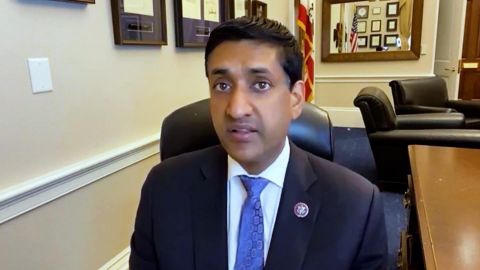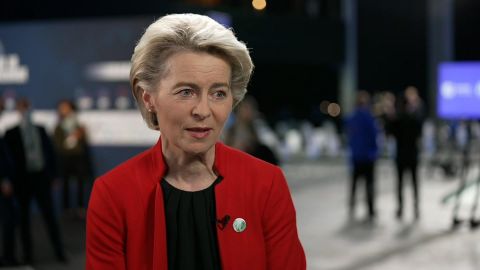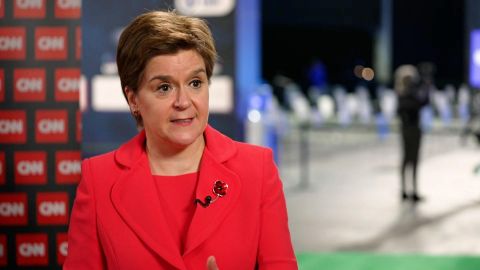Read Transcript EXPAND
CHRISTIANE AMANPOUR: Prime Minister Mottley, welcome back to the program.
MIA MOTTLEY, PRIME MINISTER OF BARBADOS: Thank you.
AMANPOUR: This is a big deal for countries like yours. And you represent a lot of the front-line countries. You, in Barbados, if I’m not mistaken, have less than a percentage point of emissions.
MOTTLEY: That’s right.
AMANPOUR: And yet you say that you are on the front lines of the impact of everybody else’s pollution.
MOTTLEY: That’s right.
AMANPOUR: What exactly do you mean by that? What does it look like?
MOTTLEY: Well, to begin with, we have a serious problem with water. We have effectively drought-like conditions for the better part of the last few years, where almost half the island is at risk of getting adequate water. Secondly, we have an impact with respect to our coral reefs. A lot of the marine life that we saw as children are no longer there. Thirdly, we have the possibility — and we’re seeing it already — of saltwater intrusion into some of our aquifers, making the water situation more dire. And then we have the sargassum seaweed as well on the east coast and of most of our countries from the very south in the region to the Gulf of Mexico. And this affects people who have restaurants or hotels or whatever, because the smell is toxic.
AMANPOUR: And that’s because of the heating…
MOTTLEY: That’s because of the climate. That’s right. And then…
AMANPOUR: … of the water?
MOTTLEY: And you have not heard me say floods or hurricane, and those are the other ones as well. This year, Barbados had its first hurricane in 66 years. And before that, we had a freak storm for 90 minutes that had 46,000 lightning strikes in 90 minutes.
AMANPOUR: Mia, do you find it difficult to convince the people who you need to convince that this is all due to climate change?
MOTTLEY: I think people are getting there. The problem is that those who need to make the decisions are kicking the can down the road and they believe that they can because they’re not seeing us. They see themselves. And for them, they don’t reach that period of peril probably for another 15, 20 years. I mean, you heard this morning, 4 degrees to Shanghai and Miami to go — to be eradicated. Well, it’s 1.5 and 2 for us. So, there are a lot of us that are going to be affected before Shanghai and Miami.
AMANPOUR: You gave a rip-roaring speech to the plenary.
MOTTLEY: Thank you.
AMANPOUR: And you notice that China is not there, you know, Russia is not there. Russia is a 5 percent polluter, but China is the biggest and, of course, America second biggest.
MOTTLEY: Yes.
AMANPOUR: What do you — what was your message with your speech?
MOTTLEY: Well, if I had more time, I would have said, code red to China, to U.S., to Europe, to India, to all of the countries who are not just the traditional emitters, but also the new ones. Part of the difficulty is that the new emitters argue that the tradition emitters have the largest stock. Well, whether it’s the largest stock or the smallest stock, we are literally like the ground on elephants’ fight, we get trampled. And that’s exactly what’s happening now. So, we really hope that the message will go forth. And that’s why I said that I hope that their populations, their people will tell them that they need to act now and not later.
About This Episode EXPAND
Global leaders are gathered at the COP26 summit to collaborate in the fight against climate change. Christiane sits down with the European Union Commission President for an exclusive interview. Scotland’s First Minister finds herself hosting top officials and climate leaders. Barbadian Prime Minister calls on rich nations to help nations like hers. Rep. Ro Khanna helped lead a historic hearing.
LEARN MORE



